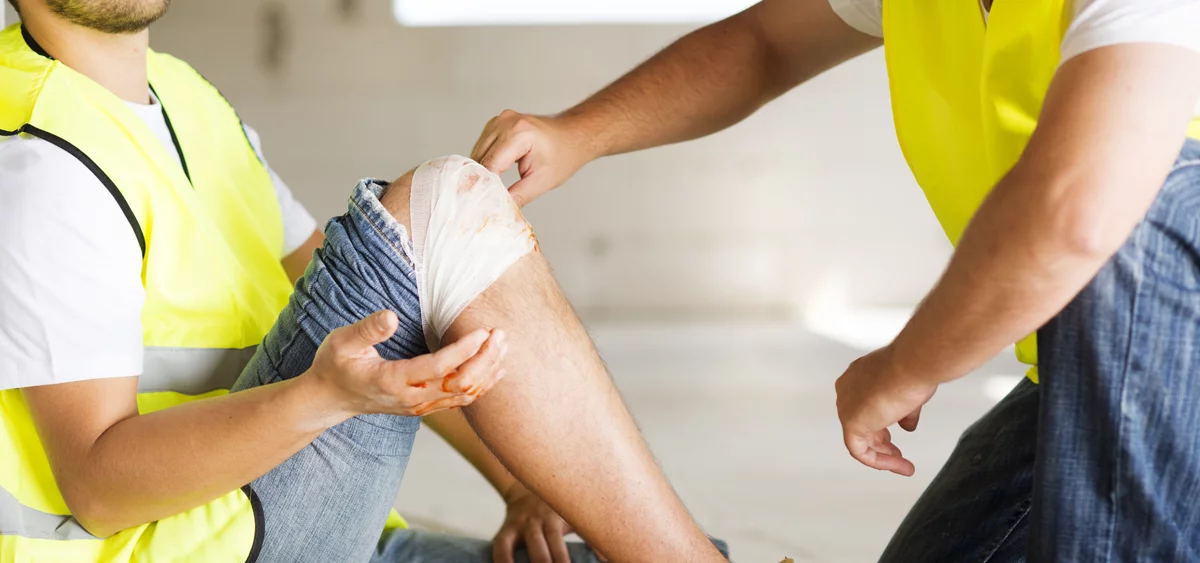Workplace accidents are an unfortunate commonality around the world. Human error, logistical failures, poor management oversight and simple bad luck all contribute to annual workplace injury figures, with the World Health Organisation reporting that, worldwide, nearly two million employees die as a result of a work-related injury each year.
In the UK, though, robust health and safety infrastructure places it above many other nations for safety at work, with much lower mortality rates than the global average. However, accidents are still relatively common – and much more common than they should be, despite falling injury rates across the board. What are the most common kinds of workplace injury?
What Are the Most Common Kinds of Workplace Injury?
According to RIDDOR, employers reported around 51,000 non-fatal injuries suffered by workers in the 2020-21 period. Of these injuries, a third were caused by suffering from a slip, trip or same-level fall – by far the largest percentage share. Slips, trips and falls can be caused by a wide variety of workplace hazards, from spilled liquids to trip hazards from loose or abandoned materials.
The next most common cause of non-fatal workplace injury was handling, lifting or carrying. This is a category that encompasses a wide range of workplace activities across industries. The most obvious examples lie in construction and manufacturing, where heavy raw materials and tools are frequently lifted and carried. However, there is also a serious risk of back injury resulting from poor lifting technique, which can be suffered by workers in food, retail and even office environments.
Third in the list of non-fatal accident causes was being struck by a moving object – whether a vehicle, or a moving part in a piece of machinery. These kinds of injuries are particularly common in agricultural environments, where farming equipment is used to move crops and livestock.
What Should You Do If You Are Injured at Work?
Suffering an injury in the workplace can be a difficult experience to navigate, but past the initial medical attention you receive there are some simple things you should do to ensure the best possible outcome. Firstly, if the accident wasn’t your fault, you may have grounds for a personal injury case – meaning you should speak to a solicitor as soon as possible.
If you are found to have a case, you should endeavour to gather any and all evidence of the incident in question, and make a second visit to your doctor to receive a note about your injury and its causes. Together, these can help you build a stronger case.
Even if the accident was your fault, though, your workplace should have a robust system in place for worker rehabilitation; open dialogue with your HR representative, and union representative if you belong to one, can help you secure the rest you need.

